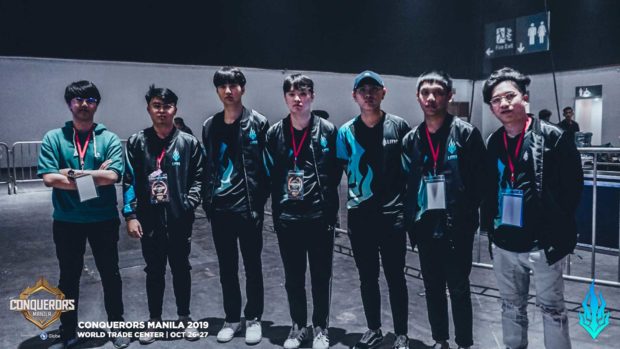With the 30th Southeast Asian Games on the horizon, expectations are high as representatives from all over the region fly in with the hopes of making their marks and bringing home the gold. And while topnotch athletes will battle in the usual calendared sports, this year’s Games will feature a new breed of athletes.
The Philippines Southeast Asian Games Organizing Committee (Phisgoc), in partnership with Singaporean-based Razer Inc., has added competitive esports to the list of disciplines in the battle for gold medals.

Mobile Legends: Bang Bang, Arena of Valor, Dota 2, Starcraft II, Tekken 7, Hearthstone; these are all video games—the kind that, not long ago, most people would just play at home. In the coming weeks, these games will be part of the global phenomenon of esports. The professional teams playing here will be witnessed by millions of viewers who, on the same screen mere days or moments before, will have just watched basketball, fencing, judo, and other traditional sports.
It may seem surreal, but the writing has been on the wall. In 2017, 60 million people around the world watched the League of Legends finals. In 2018, the champions of The International—an annual Dota 2 esports tournament—took home their share of a $25-million pot, which was crowdfunded by its spectators and fans. Just earlier this year, the country’s Team Liyab, an esports team backed by Globe Telecom and Mineski, qualified for the Arena of Valor International Championship in Bangkok.
They will be part of the national team for the SEA Games, hunting for golds in Arena of Valor as well as in Starcraft II.
More than topping its events and bringing pride to the country, Team Liyab has another mission: To change the perception that competitive e-sports doesn’t belong in an athletic arena. Many people find it hard to consider esports as a real sport, or to put professional gamers on the same page as real athletes. But a lot of video gaming is like chess, which is a featured sport all around the world and has its own Olympiad.
Chess players are no strangers to physical stress, and competing at tournaments sometimes makes them lose 10 pounds and burn 6,000 calories just by sitting across from their opponents.
Team Liyab’s Arena of Valor Captain, Kevin Dizon, admits this stigma “…will not immediately go away and we understand that.”
But he believes “It is up to us, the esports athletes and the different esports organizations, to prove that we deserve to be recognized as more than just [gamers].”
For starters, Team Liyab certainly does put in an athlete–like work to live up to the demands of professional esports. Dizon typically trains eight hours a day either in-game or analyzing matches.
Team Liyab even employs a nutritionist to oversee its members’ diet and supplements.
Globe is betting on esports as an athletic discipline and has already expressed an interest in starting esports schools in the Philippines.
Globe and Mineski are well equipped to promote esports as not just a hobby, but as a way of life. It’s an uphill battle but Team Liyab hopes to reinforce that fight with a golden performance in the SEA Games, which is a chance to show the world that competitive video games can showcase the fighting spirit of an athlete as well as any other sport./JP Esteban, Contributor

